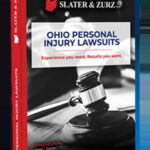If you’ve been arrested for Driving While Intoxicated (DWI) in Fort Worth or Tarrant County, you’re likely facing a confusing and stressful situation. At internetlawyers.net, our Fort Worth Dwi Lawyers understand the complexities of Texas DWI law and are dedicated to providing you with the strongest possible defense. Our experienced team, including Board Certified Criminal Law Specialists, has a proven track record of success in hundreds of DWI cases, ranging from dismissals and reductions to acquittals. We are trial-tested and ready to fight for your rights.
In this comprehensive guide, our Fort Worth DWI lawyer team will break down everything you need to know about DWI charges in Texas. We’ll explain the legal definitions of intoxication, the prosecution process, the severe consequences of a DWI conviction, and most importantly, effective strategies to defend against DWI charges in Fort Worth. Even if you feel lost and overwhelmed after an arrest, understanding your rights and options is the first step towards a favorable outcome.
Varghese Summersett: Recent DWI Defense Successes in Fort Worth
Our firm, Varghese Summersett, consistently achieves positive results for our clients facing DWI charges in Fort Worth and Tarrant County. We are committed to providing aggressive and knowledgeable representation. Our attorneys leverage deep understanding of Texas DWI law and extensive courtroom experience to advocate effectively for our clients.
Understanding DWI Defense in Fort Worth, Texas
Being charged with DWI in Fort Worth doesn’t hinge on whether you intended to drive drunk. Texas law focuses on the act of operating a vehicle while intoxicated, regardless of intent. This broad definition means DWI arrests are unfortunately common, affecting individuals from all walks of life. Our Fort Worth DWI lawyers have represented professionals across various sectors – from doctors and nurses to teachers and business owners – all facing DWI allegations. If you or someone you know has been arrested for DWI in the Fort Worth area, this article provides critical information and guidance.
Conveniently Located Fort Worth DWI Attorneys
Our Fort Worth office is strategically situated just a few blocks from the Tarrant County Courthouse, at One City Place Building, 300 Throckmorton Street, Fort Worth, TX 76102. This central location allows us to efficiently serve clients throughout Fort Worth and Tarrant County. We occupy the entire seventh floor, providing ample resources and a dedicated space for our DWI defense practice.
 Our lawyers are your compass in the storm.
Our lawyers are your compass in the storm.
Alt text: Compass image symbolizing Fort Worth DWI lawyers guiding clients through legal challenges.
Why Trust Our Fort Worth DWI Lawyer Expertise?
Why should you consider Varghese Summersett as your Fort Worth DWI lawyer? Our authority in DWI defense, particularly within Tarrant County, is built on a foundation of extensive trial experience. Our partners have collectively tried over 300 DWI, Intoxication Assault, and Intoxication Manslaughter cases before Tarrant County juries. This extensive courtroom experience sets us apart. Consider that roughly 98% of DWI cases in Fort Worth are resolved through plea bargains. We are adept at identifying weaknesses in the prosecution’s case and using them to negotiate the best possible outcome for our clients, or taking the case to trial when necessary. Real-world trial experience is invaluable in DWI defense, and prosecutors recognize our depth of knowledge and preparedness from the moment we take a case.
For example, we achieved a Not Guilty verdict in a case with an exceptionally high blood alcohol concentration of .359 BAC – over four times the legal limit. Such outcomes are exceedingly rare and demonstrate our capability to challenge even seemingly insurmountable evidence.
Whether your case requires aggressive litigation, strategic motion practice, or skilled negotiation, we are committed to keeping you informed and supported throughout the process. From your initial consultation to the resolution of your case, you’ll find our approach to be uniquely understanding, transparent, and effective. Let’s delve into the essential information you need if you’ve been arrested for DWI in Texas.
Essential Information for DWI Arrests in Fort Worth, Texas
What Constitutes a DWI in Texas?
A first-time DWI in Texas is classified as a Class B misdemeanor, carrying a potential jail sentence of up to 180 days. Surprisingly, the legal definition of Driving While Intoxicated in Chapter 49 of the Texas Penal Code doesn’t explicitly use the word “driving.” To secure a DWI conviction in Texas, the prosecution must prove the following elements beyond a reasonable doubt:
- On or about a specific date.
- The accused individual.
- “Operated.”
- A motor vehicle.
- While intoxicated.
The legal definition of “intoxicated” in Texas encompasses three possibilities:
- Lack of “normal” mental faculties due to an intoxicant.
- Lack of “normal” physical faculties due to an intoxicant.
- A blood alcohol concentration (BAC) of 0.08 or more.
The term “normal” is intentionally vague within the legal definition, making cases without breath or blood tests potentially vulnerable to challenge. It’s crucial to understand that intoxication isn’t limited to alcohol. You can be charged with DWI in Fort Worth for impairment caused by prescription drugs, illegal substances, combinations of drugs and alcohol, or alcohol alone. Our Fort Worth DWI lawyers have extensive experience defending against all types of DWI charges.
 Our lawyers are your bridge over troubled waters.
Our lawyers are your bridge over troubled waters.
Alt text: Bridge image symbolizing Fort Worth DWI lawyers providing stability and solutions for clients.
DWI vs. DUI in Texas: Understanding the Difference
While the terms “DUI” and “DWI” are often used interchangeably, especially outside of Texas, they have distinct legal meanings within the state. In many states, “DUI” (Driving Under the Influence) is the general term, but in Texas, “Driving While Intoxicated” (DWI) is the standard charge for impaired driving for adults.
In Texas, “DUI” (Driving Under the Influence) specifically applies to drivers under the age of 21 who operate a vehicle with any detectable amount of alcohol in their system. It is a Class C offense, punishable by a fine up to $500.
Here’s a table summarizing the key differences between DUI and DWI in Texas:
| Feature | Driving Under the Influence (DUI) | Driving While Intoxicated (DWI) |
|---|---|---|
| Applicable Age | Drivers under 21 years old | No age restriction |
| Intoxicant Focus | Alcohol only | Any intoxicant: alcohol, illegal drugs, prescription drugs, combinations |
| Criminal Classification | Class C Misdemeanor | Class B Misdemeanor (standard first offense) |
| Maximum Fine | $500 | $2,000 (standard first offense) |
| Potential Jail Time | None typically | 3 to 180 days in county jail (standard first offense) |
| License Suspension (Initial) | 60 days | 90 to 180 days |
| Relevant Texas Statute | [Section 106.041 Texas Alcoholic Beverage Code](link to statute) | [Chapter 49.04, Texas Penal Code](link to statute) |
[Links to statutes will be inserted here]
Recently, The Texan interviewed one of our Fort Worth DWI lawyers to clarify how individuals in Texas can face DWI charges even with BAC levels below 0.08. Texas law allows for DWI prosecution based on the subjective definitions of intoxication – impairment of mental or physical faculties – even if the driver’s BAC is under the legal limit. Many Texans are unaware of this aspect of the law.
Our success in handling DWI cases in North Texas has led us to expand our services. In addition to our Fort Worth team, we also have a dedicated team of DWI lawyers in Dallas.
For further insight into our defense strategies, watch this video where Fort Worth DWI Lawyer Benson Varghese explains how Varghese Summersett effectively defends DWI cases in Tarrant County and North Texas. [Insert Video Link Here].
Proven Strategies to Beat a DWI in Fort Worth
How Can a Fort Worth DWI Lawyer Get Your Case Dismissed?
Our Fort Worth DWI lawyers at Varghese Summersett have a strong record of achieving dismissals, acquittals, and reductions in DWI cases. This success stems from two key factors: our extensive trial experience in DWI defense and our ability to identify often-overlooked weaknesses in the prosecution’s case.
While outright DWI dismissals are relatively uncommon, we have secured them for our clients through diligent legal work. From 2014 to 2019, Tarrant County saw an average of over 5,000 misdemeanor DWI filings annually, with only about 100 dismissals per year. Here are some primary strategies our Fort Worth DWI lawyers use to pursue dismissals:
Top Defense Tactics from a Fort Worth DWI Attorney
-
Challenging Reasonable Suspicion for the Initial Stop
For a traffic stop to be legal, a police officer must have “reasonable suspicion” – specific, articulable facts suggesting a traffic violation or criminal activity. Officers sometimes err in their judgment. We recently secured a dismissal in a case where a driver was stopped for failing to stop before exiting a driveway at a shopping center. However, the sidewalk configuration at that driveway meant a stop was not legally required. The officer’s mistake led to an illegal stop, and we successfully argued for dismissal. Dashcam or bodycam footage often contradicts an officer’s stated reason for a stop, providing grounds to challenge the legality of the stop.
-
Attacking Probable Cause for DWI Arrest
An arrest for DWI requires “probable cause” – sufficient facts and circumstances to lead a reasonable person to believe a crime has been committed. This is a frequent area of challenge in DWI cases. Many attorneys focus solely on the client’s performance on Field Sobriety Tests (FSTs). However, we often find grounds to suppress FST results because of improper administration by the officer. Strict adherence to standardized FST protocols is essential for their reliability in court. (This is a key reason we advise individuals to [politely refuse field sobriety tests](link to blog post) if asked). Furthermore, an individual’s “normal” baseline can vary due to factors like fatigue, time of day, or underlying medical conditions – factors often disregarded during roadside assessments. If we can demonstrate that probable cause for your arrest was lacking, we can file a Motion to Suppress evidence, potentially leading to dismissal.
-
Cases Without Breath or Blood Samples
Although less frequent in Fort Worth, some DWI cases proceed without breath or blood test results. These cases, relying solely on subjective observations, are inherently weaker and more susceptible to challenge. When officers fail to obtain a warrant after a breath or blood test refusal (when legally required), it can create a significant defense opportunity.
-
Contesting Search Warrants for Blood Draws
If a blood sample is obtained via a search warrant, the warrant affidavit itself must establish probable cause to justify the blood draw. If the affidavit lacks sufficient probable cause, our Fort Worth DWI lawyers can challenge the warrant through a Motion to Suppress.
 Our criminal defense attorneys stand between you and the government
Our criminal defense attorneys stand between you and the government
Alt text: Image symbolizing Fort Worth DWI attorneys protecting individuals’ rights against governmental overreach.
-
Challenging False Statements in Search Warrants – Franks Hearings
If a search warrant affidavit contains false information, intentionally or recklessly included by the officer, we can request a [Franks Hearing](link to legal definition). This evidentiary hearing allows us to challenge the warrant’s validity by demonstrating the officer’s false statements, potentially leading to the suppression of evidence.
-
Examining Breath Test, Blood Draw, and Lab Procedures
We maintain current knowledge of forensic lab procedures, equipment issues, and testing protocols, both locally and nationally. We scrutinize breath and blood test procedures for any deviations or errors that could compromise the results. Successfully challenging the admissibility of breath or blood evidence is a significant victory in DWI defense, and we have achieved this in numerous cases.
-
Time of Intoxication vs. Time of Driving – Retrograde Extrapolation
To secure a DWI conviction, the prosecution must prove intoxication at the time of driving, not just at the time of testing. The time elapsed between driving and testing is a critical factor. Alcohol metabolizes in the body over time. Depending on various factors – time of last drink, food consumption, alcohol type and quantity, individual metabolism – your Blood/Breath Alcohol Concentration (BAC) at the time of driving could be:
- Higher than the later test result.
- Lower than the later test result.
- The same as the later test result.
[Link to Retrograde Extrapolation explanation/image]. This concept, known as retrograde extrapolation, can be complex. An experienced Fort Worth DWI lawyer will consult with toxicological experts to analyze the specific circumstances of your case and determine if retrograde extrapolation can be used to challenge the accuracy of BAC results and argue that you were not legally intoxicated while driving. It’s possible to register over the legal limit in a test, yet have been under the limit while actually driving – a crucial distinction for your defense.
-
Raising Reasonable Doubt
Ultimately, a DWI case can be won by demonstrating that the prosecution cannot prove guilt beyond a reasonable doubt. This can be achieved through a jury trial or by strategically challenging evidence admissibility in pre-trial hearings and motions.
Standardized Field Sobriety Tests in Fort Worth DWI Investigations
The National Highway Traffic Safety Administration (NHTSA) has standardized three Field Sobriety Tests (FSTs) commonly used in Texas DWI investigations:
- Horizontal Gaze Nystagmus (HGN) Test: Observes involuntary eye movements (nystagmus) as the suspect follows a moving object horizontally. Certain types of nystagmus can indicate impairment.
- Walk-and-Turn (WAT) Test: Evaluates balance and coordination through instructions to take nine heel-to-toe steps, turn, and return. Performance is assessed against specific “clues” of impairment.
- One-Leg Stand (OLS) Test: Assesses balance and divided attention by requiring the suspect to stand on one leg, six inches off the ground, and count aloud for 30 seconds. Observed “clues” indicate possible impairment.
Understanding Field Sobriety Tests
[Insert Tabbed Content Here – Replicating original tabbed content if possible, or simplifying to text explanation if tabbed content is not easily reproducible in markdown]
Alt text: Expertise.com award badge recognizing Varghese Summersett as a top Fort Worth DUI lawyer.
Key Elements of a DWI Charge in Texas
As mentioned earlier, the legal definition of DWI in Texas, found in Chapter 49 of the Penal Code, focuses on “operation” of a vehicle while “intoxicated.” To reiterate, the prosecution must prove these core elements:
- Operation: The accused individual operated a motor vehicle.
- Motor Vehicle: The vehicle qualifies as a “motor vehicle” under Texas law.
- Intoxication: The individual was intoxicated while operating the vehicle (meeting one of the three legal definitions of intoxication).
DWI Attorney Cost Factors in Fort Worth
The cost of hiring a Fort Worth DWI lawyer can vary significantly. Attorney fees are influenced by factors such as:
- Experience and Reputation: Highly experienced and reputable attorneys, especially those with proven trial success in DWI cases, often command higher fees due to demand for their services.
- Case Complexity: More complex cases involving accidents, injuries, high BAC levels, or prior offenses may require more extensive legal work and thus incur higher fees.
- Firm Resources: Larger firms with specialized teams and resources may have different fee structures compared to solo practitioners.
Generally, attorneys with substantial trial experience in Tarrant County DWI cases, like those at Varghese Summersett, are highly sought after and their fees reflect their expertise.
Penalties for First-Time DWI in Texas
| DWI Offense Category | Potential Penalties |
|---|---|
| Driving While Intoxicated (DWI) | 3-180 days jail, up to $2,000 fine |
| DWI BAC ≥ 0.15 | 0-365 days jail, up to $4,000 fine |
| DWI with Child Passenger | 0-2 years State Jail, up to $10,000 fine |
| Intoxication Assault | 2-10 years prison, up to $10,000 fine |
| Intoxication Manslaughter | 2-20 years prison, up to $10,000 fine |
Potential Outcomes for a First-Time Misdemeanor DWI in Fort Worth
- Jail Sentence: Possible jail time ranging from 3 to 180 days (Class B misdemeanor) or up to 1 year (Class A misdemeanor for BAC ≥ 0.15).
- Deferred Adjudication: Possibility of deferred adjudication probation for up to two years on a Class B misdemeanor, potentially avoiding a conviction on your record if probation is successfully completed.
- Probation: Standard probation for up to two years on Class A or Class B misdemeanors.
- Reduced Charge: In cases with significant legal weaknesses, charges may be reduced to a lesser offense, such as Obstruction of a Highway.
- Case Dismissal: If critical evidence is suppressed due to legal challenges, the case may be dismissed entirely.
Likelihood of Jail Time for a First DWI in Fort Worth
While every DWI arrest begins with potential jail time, for first-time misdemeanor DWI offenses, the likelihood of serving jail time as punishment is relatively low, especially if you retain experienced counsel and follow their advice. Initial jail time after arrest is typically for processing and bond setting. With proper legal representation, the focus shifts to avoiding jail as a sentence.
Financial Costs of a First-Time DWI in Fort Worth
The total financial impact of a first-time DWI in Texas extends far beyond attorney fees and fines. Considering all associated costs – legal fees, court costs, fines, probation fees, mandatory classes, increased insurance premiums, license reinstatement fees – a first-time DWI can easily cost between $15,000 and $20,000 or even more.
What to Expect After a DWI Arrest in Fort Worth
Following a DWI arrest in Fort Worth, you can expect this general process:
- Breath or Blood Test Request: The arresting officer will request a breath or blood sample. Refusal may lead to a warrant for a blood draw.
- Jail and Booking: After testing (or refusal and warrant blood draw), you will be taken to jail for booking and processing.
- Bond Setting: A bond will be set, allowing for release from jail. This may be a monetary bond or release on personal recognizance.
- Bond Conditions: You will be subject to bond conditions, which may include abstaining from alcohol, installing an ignition interlock device, or other restrictions pending case resolution.
ALR Hearings in Fort Worth DWI Cases
An Administrative License Revocation (ALR) hearing is a separate civil proceeding, independent of the criminal DWI case, that determines whether your driver’s license should be suspended. It is heard by an Administrative Law Judge, not the criminal court judge. License suspension in an ALR case can occur even without a DWI conviction, and the burden of proof is lower than in a criminal trial. [Link to ALR video explanation]. It is crucial to act quickly and request an ALR hearing within 15 days of your DWI arrest to challenge a potential license suspension.
DWI: Misdemeanor or Felony in Texas?
Generally, a first-time DWI in Texas is charged as a misdemeanor, typically a Class B misdemeanor. However, a first-time DWI can be elevated to a Class A misdemeanor if your BAC was 0.15 or greater.
In specific circumstances, a first-time DWI can even be charged as a felony. This occurs if there was a child passenger in the vehicle at the time of the offense.
If you or a loved one is facing DWI charges in Fort Worth, contact our experienced Fort Worth DWI lawyers at internetlawyers.net for a consultation. We are here to protect your rights and fight for the best possible outcome in your case.

 Top DUI Lawyer in Fort Worth
Top DUI Lawyer in Fort Worth
